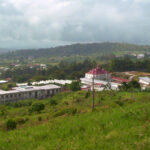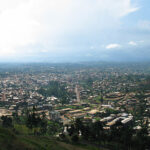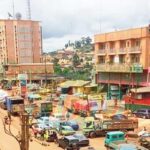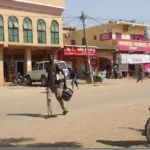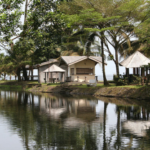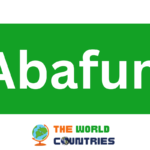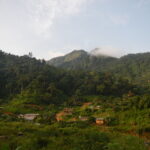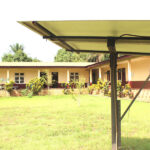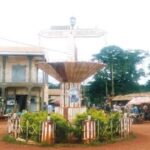Kribi
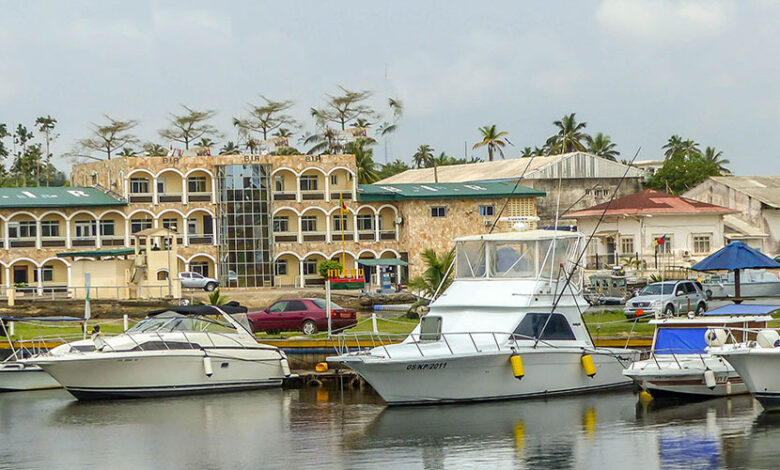
Kribi, a picturesque beach resort and bustling seaport, is nestled in the southwestern region of Cameroon. This vibrant town is located on the Gulf of Guinea, lapped by the turquoise waters of the Atlantic Ocean. Known for its stunning natural beauty and rich cultural heritage, Kribi has become a popular destination for tourists seeking a unique coastal experience. Let’s explore the enchanting town of Kribi, its fascinating history, thriving port, and the myriad of attractions it has to offer.
A Coastal Gem in Cameroon
Kribi is situated in the Ocean Department of the South Province, approximately 150 kilometers south of Douala, the largest city in Cameroon and the country’s busiest seaport. The town boasts a strategic location at the mouth of the Kienke River, where it meets the Gulf of Guinea. Its coordinates are 2° 56′ 6.00″N, 9° 54′ 36.00″E, making it easily accessible by road and water.
A Glimpse into Kribi’s History
Kribi’s history dates back to the early 19th century when a commercial factory was established in the area. This factory served as a trading hub for various goods, including ivory, rubber, palm oil, and other valuable products. The presence of this factory sparked the development of a robust trade network in southern Cameroon, leading to tensions among different African populations over the capture and enslavement of individuals forced to collect these resources for export.
A Thriving Port and Trade Center
Kribi’s port plays a pivotal role in facilitating sea traffic in the Gulf of Guinea. It serves as a vital hub for the export of ivory, cocoa, timber, and coffee, as well as the import of various goods. The port also serves as a bustling trade center for local agricultural products and fish, contributing to the economic growth of the region. The development of the Chad-Cameroon pipeline further enhances the port’s significance in facilitating trade and commerce.
Natural Wonders and Cultural Delights
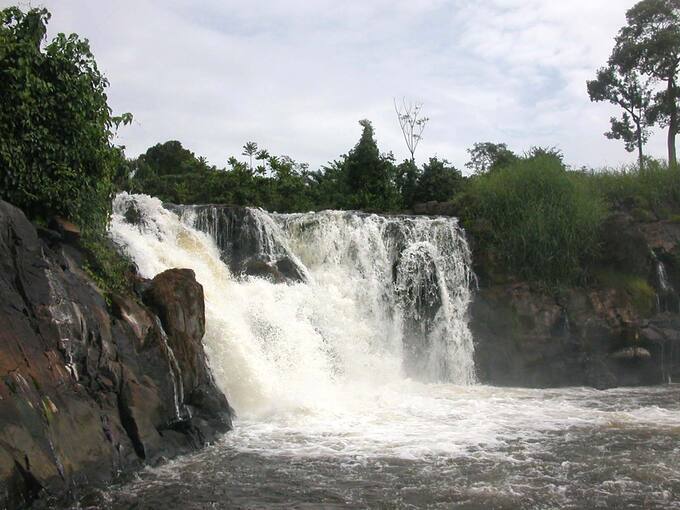
Kribi is blessed with an abundance of natural wonders that captivate visitors from all over the world. One of the notable attractions is the Lobe Waterfalls, a majestic cascade surrounded by lush greenery. The falls provide a breathtaking backdrop for nature enthusiasts and photographers alike. Additionally, Kribi is home to the Campo Faunal Reserve, a protected area that showcases the region’s diverse flora and fauna.
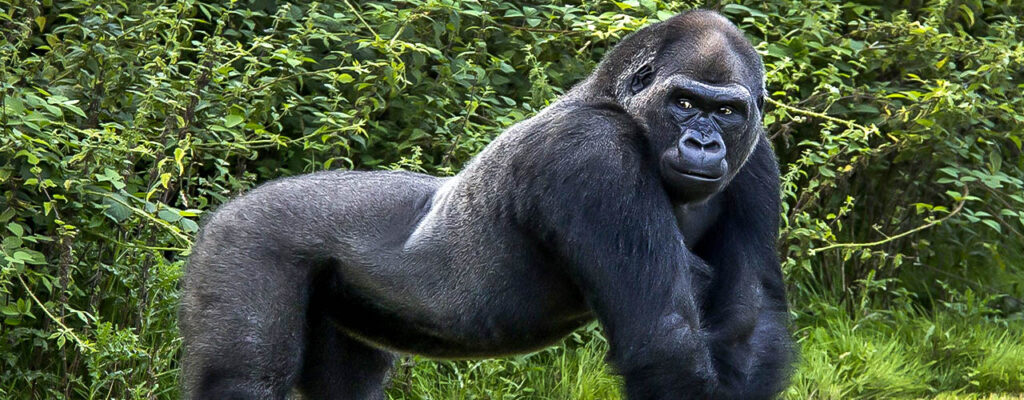
Immerse yourself in the rich cultural heritage of Kribi by exploring the local communities of Pygmies in Bipindi and Lolodorf. These native communities offer a unique glimpse into their traditional way of life, showcasing their rich ancestral traditions and customs.
Powering the Future: Kribi Power Station
Kribi is not only a thriving port and tourist destination but also a hub for energy production. The Kribi Power Development Company (KPDC) has constructed a state-of-the-art natural gas-powered electricity generating plant, known as the Kribi Power Station. With a capacity of 216 megawatts and an investment of US$390 million, the power station has been instrumental in meeting the growing energy demands of the region. The success of the Kribi Power Station has led to plans for a second phase expansion to further enhance the region’s power infrastructure.
Future Port Development and Connectivity
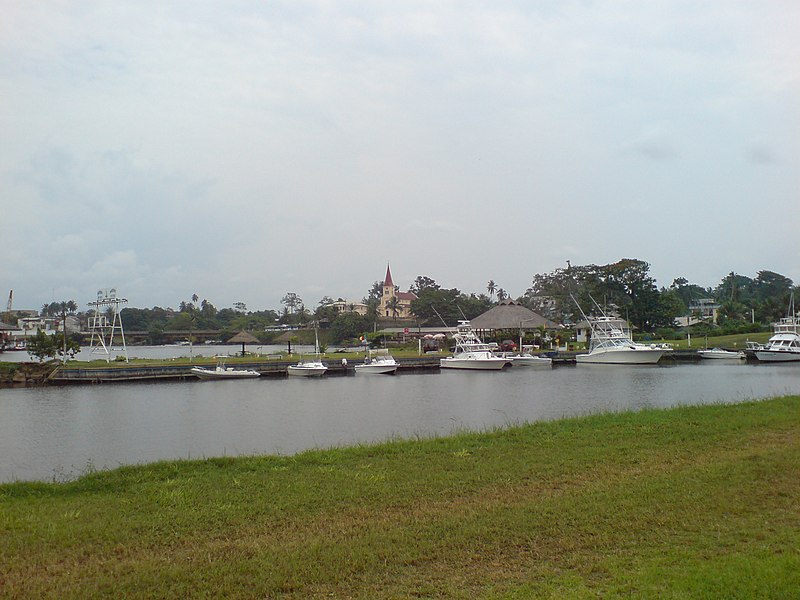
Kribi’s strategic location has made it an ideal site for the development of a proposed port for the export of iron ore and bauxite. The port, located several kilometers offshore, will cater to large Capesize ships and provide a crucial gateway for the export of these valuable resources. The development of the port by Louis Berger is underway, with completion expected by 2020.
To support the port’s operations, a new rail link between Kribi and Edea is being constructed. This rail link, with dual gauge sleepers, will connect the port to the existing meter gauge network and ensure seamless transportation of goods. The rail link is also aligned with the proposed African Integrated High-Speed Rail Network (AIHSRN), further enhancing connectivity in the region.
The Potential of Iron and Bauxite Mining
The port of Kribi will serve as a gateway for the export of iron ore and bauxite extracted from mines located in Mbalam and Minim, Martap, respectively. The iron mine in Mbalam is expected to have an output of approximately 35 million tonnes per year, while the bauxite mine in Minim, Martap, will contribute significantly to Cameroon’s mining industry. These mining projects will further consolidate Kribi’s position as a key player in the export of valuable mineral resources.
Twinning for Global Connections
Kribi has established global connections through its twinning initiatives with other cities around the world. Twinning, also known as sister city relationships, fosters cultural exchange and collaboration between cities. Although specific twin cities for Kribi were not mentioned in the reference article, this initiative strengthens international relations and promotes mutual understanding among diverse communities.
A Tropical Monsoon Climate
Kribi experiences a tropical monsoon climate, characterized by distinct wet and dry seasons. The town’s equatorial location results in high temperatures and humidity throughout the year. The hottest month, February, sees average high temperatures of 32°C (89.6°F), while the wettest month, September, receives an average of 483mm (19 inches) of rainfall. December, on the other hand, experiences relatively drier conditions with 59mm (2 inches) of rainfall. Visitors should plan their trips accordingly, taking into account the climate patterns of the region.
Delights for the Senses: Things to Do in Kribi
Kribi offers an array of exciting activities and attractions that cater to diverse interests. The town’s pristine beaches, including the renowned Ngo’e Beach, provide the perfect setting for sunbathing, swimming, and leisurely strolls along the coast. The Lobe Waterfalls, with their awe-inspiring beauty, offer a mesmerizing backdrop for nature lovers and adventure seekers.
Indulge in the local culinary delights by savoring the freshly caught and roasted fish, a specialty of Kribi. Fishermen bring in their daily catch, allowing visitors to choose from a variety of fish that can be grilled to perfection in the local restaurants along the beach.
For those seeking vibrant nightlife, places like Big-BEN offer a lively atmosphere with music, dancing, and entertainment. Experience the pulsating energy of Kribi’s nightlife scene, where locals and tourists come together to celebrate and unwind.
